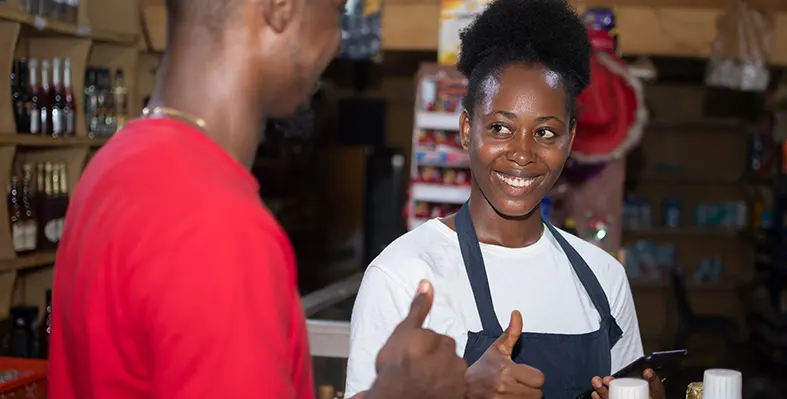In recent years, the South African media landscape has come under increasingly strong commercial pressures as media stakeholders have maintained conflicting interests over content matter, management, and delivery
There are legitimate concerns over the need for, or lack of, effective broadcasting and print media reporting in South Africa - in particular, as a consequence both of commercial and legislative developments.
The need for progressive media environments is a particular focus of the work of the Institute for the Advancement of Journalism (IAJ), which is committed to support for and development of media freedom throughout the Southern African region.
The institute's work was outlined recently by Amina Frense, managing editor at SABC, and IAJ chairperson - in an interview with Communications Africa/Afrique.
Frense is keen to address concerns for an improved media landscape through the activities of the IAJ - which was founded in 1992 by Alistair Sparks, a media analyst and former editor of the Rand Daily Mail.
It is really coming of age in its 21st year, continually seeking to improve the quality of journalism by running courses for mid-career journalists. A key concern fo the IAJ is the management of the emerging digital landscape, and how this plays into work in broadcast journalism.
Amina Frense said, "These are very interesting times. Pre-1994 we were involved in all kinds of debates trying to find a working model for future development, exploring the form and function of democratic journalism, asking questions about the nature of public broadcasting, and even exposing print journalist to broadcast journalists.
"Today, keeping up with the trends, we try still to be future orientated, and our journalism courses, including social media and other elements.
"There are still journalists who are coming to our courses to keep up with trends, either it is blogging, graphic design, social media, commercial or public-private partnerships, including those with tertiary institutions such as Wits, the University of Witswatersrand.
"In fact, the synergy between the IAJ and tertiary institutions is particularly interesting - and we see ourselves as facilitators for specialist training and development."
Building an appetite for more media, and improved media practices
Another particularly interesting aspect of the IAJ's work is its instilling in youth an appetite for media as a career, and an early grounding in media skills - encouraging children and adults of all races, cultures and backgrounds, by helping them to create their own newspapers at workshops.
"What came out of this is a great interest in newspapers, and many of those kids have become award-winnning journalists," said Amina.
These kids, Amina said, tried everything they could, because media was so new to them. They were intuitively innovative. One little girl, Amina recalled, said, "What is the news? It is truth plus spice!"
An example of progressive support for deprived communities is the work of the IAJ at Katlehome, a particularly troubled South African township. The destructive and criminalistic experiences children had there were turned into early journalistic efforts - and so into the newspapers produced at the workshops.





















